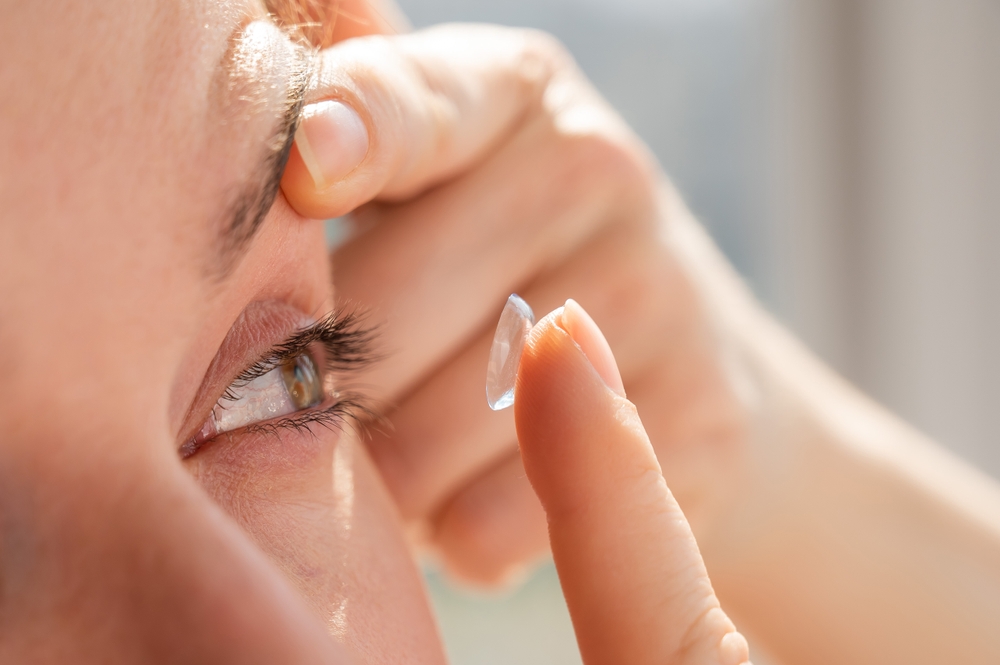
Which Eye Conditions Can Scleral Contact Lenses Treat?
Scleral contact lenses are rapidly gaining popularity in eye care due to their comfort, stability, and specialized design that provides a custom fit over the sclera (white part) of the eye. Unlike traditional contact lenses, scleral lenses vault over the cornea, creating a tear-filled reservoir between the lens and the eye. At 2020 EyeMax, we offer specialty scleral contact lenses designed to address various complex eye conditions. Here’s a closer look at the specific eye conditions that scleral lenses can effectively treat.
Keratoconus
Keratoconus is a condition in which the cornea becomes progressively thinner and cone-shaped, leading to distorted vision. Standard contact lenses often don't provide the stability and clarity needed for those with keratoconus. Scleral lenses, however, offer a smooth optical surface, providing clear, stable vision and helping to alleviate the discomfort associated with this condition.
Severe Dry Eye Syndrome
Scleral lenses act as a protective shield for the cornea, maintaining a reservoir of saline solution between the lens and the eye. This constant lubrication helps soothe symptoms of severe dry eye and protects the sensitive corneal surface, making scleral lenses an excellent option for people who struggle with dryness despite other treatments.
Corneal Irregularities
Corneal irregularities can result from surgery, injury, or conditions like corneal scarring. Because scleral lenses vault over the cornea, they create a smooth optical surface that can significantly improve vision for people with irregular corneas. This is particularly beneficial for those who have had refractive surgeries, such as LASIK, but now face visual complications.
Pellucid Marginal Degeneration (PMD)
Similar to keratoconus, PMD causes a thinning of the cornea, particularly along the lower edge, leading to distorted vision. Scleral lenses help restore clarity and reduce discomfort by bypassing the irregularities and providing a more even surface for light to pass through.
Post-Surgical Corneas
Individuals who have undergone corneal surgery, such as corneal transplants or other corrective procedures, may experience irregularities that traditional contacts can't correct. Scleral lenses offer the stability and comfort that post-surgical corneas need, helping patients achieve better visual outcomes without irritation.
Ocular Surface Disease
Scleral lenses are also beneficial for managing conditions like Sjögren’s syndrome, a disorder that reduces tear production, leading to dry eyes. The fluid layer within scleral lenses keeps the ocular surface moist, providing substantial relief for those with various types of ocular surface diseases.
Severe Astigmatism
Astigmatism, especially severe or irregular astigmatism, can be challenging to correct with regular contact lenses. Scleral lenses can address these issues, creating a smooth refractive surface that improves visual acuity for those with astigmatism who may not have had success with other lenses.
Graft-Versus-Host Disease (GVHD)
Patients with GVHD often experience ocular discomfort and dry eye symptoms as part of their condition. Scleral lenses can create a protective, moist environment for the cornea, reducing symptoms and allowing individuals to manage their eye health more effectively.
Schedule a Consultation with 2020 EyeMax Today
Scleral contact lenses are an incredible solution for individuals with unique and challenging eye conditions. By providing a comfortable fit, excellent hydration, and a clear field of vision, scleral lenses can significantly improve the quality of life for those with keratoconus, severe dry eye, corneal irregularities, and more. If you’ve struggled with traditional contact lenses or suffer from any of these conditions, scleral lenses may be the perfect option for you.
Schedule a consultation with 2020 EyeMax to discover how scleral lenses can help you achieve clearer, more comfortable vision. Visit our office in Lexington, Kentucky, or call (859) 787-0936 to book an appointment today.









